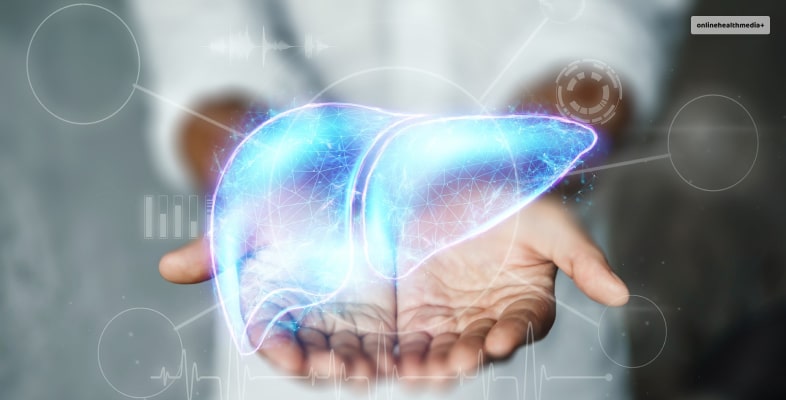What Are The Signs Your Liver Is Healing? Know It All Here!
The liver has the capacity for recovery and regeneration. But what are the signs your liver is healing, and how long does the process typically take? If you are searching for the answer to these questions, you have reached the right place.
You may experience fatigue and sickness if your liver function is compromised by a number of medical disorders. This could significantly affect how happy you are in life. The liver can mend itself, which is wonderful news. Here are several indicators that your life may be healing.
Keep reading this article till the end to learn more…
Contents
Signs Your Liver Is Healing!

Approximately 1.8% of American adults, according to the Centers for Disease Control and Prevention, have liver disease. 4.5 million people roughly. However, many liver problems are treatable and even reversible.
The ability of your liver to recover and repair is crucial to understand. Positive adjustments take place throughout the body while the liver heals. Improvements in your digestion, skin’s appearance and feel, mental clarity, and energy levels are just a few examples of the changes that may occur.
Let’s take a look at what are the signs your liver is healing…
1. Stable Weight

Because of the connection between your liver and metabolism, liver function might have an impact on your weight. People with liver illness may experience nutritional inadequacies as well as accidental weight gain. However, when your liver recovers more, you could find it easier to control your weight.
2. Better And Clear Thinking

Toxin removal from the blood is one of the liver’s main jobs. They build up in your body if this procedure is not followed.
Hepatic encephalopathy, also known as HE, is a disorder brought on by toxins that affect brain activity. This is a disorder that affects the brain’s ability to function and signifies liver-related. Hepatic encephalopathy, then, is a liver condition that impairs brain activity. It results in symptoms like confusion and brain fog.
HE might happen quickly or over time, gradually. People who have severe or chronic liver illness are more likely to get HE. The following are typical liver ailments and diseases:
- A, B, or C hepatitis
- Hepatitis auto-immun e
- Abuse of alcohol
- Alcohol-unrelated fatty liver disease
- Steatohepatitis without alcohol
- Disordered bile ducts
Some medications may cause HE if the liver is unable to break them down and they are not eliminated from the body. The medicines might stay in the body and affect how well the brain works as a result.
3. Skin And Eye Color

Jaundice is a yellowing of the skin and sclera (the whites of the eyes). It frequently occurs in liver disease.
Jaundice is brought on by high bilirubin levels. Red blood cells contain a substance called bilirubin that aids in the transportation of oxygen.
Red blood cells undergo a breakdown in the liver towards the conclusion of their life cycle. However, bilirubin builds up in the blood when the liver is unable to do this, giving your skin and eyes a yellow appearance.
Your skin and eyes beginning to take on their regular hues is a sign that your liver is healing. It is once again able to degrade old blood cells, preventing large concentrations of bilirubin from building up in your blood.
4. High Energy Levels

A typical sign of many illnesses, including liver disease, is fatigue. You can have a lack of energy or the feeling that you are “running on empty.” You might still feel fatigued after sleeping.
If you have liver disease and are tired all the time, you might find that as your liver function gets better, so does your energy level. So, having more energy can be an indication that your liver health is becoming better.
5. Improved Blood Work In The Body

- Your liver’s general health is examined via a series of blood tests referred to as liver function tests. These examinations gauge the liver’s production of numerous proteins, enzymes, and other compounds.
- Typically, liver function tests look at your levels of the following substances:
- A liver-produced protein is albumin.
- The total protein is the sum of all the proteins in the blood.
- When the liver is harmed, several liver enzymes, including alkaline phosphatase (ALP), alanine transaminase (ATP), aspartate aminotransferase (AST), and gamma-glutamyl transferase (GGT), are released into the bloodstream.
- When the liver fails to break down red blood cells, a substance called bilirubin is produced.
- Prothrombin time is a test that gauges how quickly your blood clots.
The results of these tests might give you a general idea of how well your liver is working.
Your liver may be impaired if your findings are outside of the usual range. Results within the normal range show that your liver is working properly.
Blood tests give you crucial knowledge about the condition of your liver. When your blood tests begin to return to normal, your liver may be recovering.
6. Reduced Pain

In liver illness, pain is quite prevalent. To keep their pain under control, some people with liver disease frequently take painkillers.
As your liver begins to heal, your pain should subside. So, using less pain medication and experiencing less pain may be signs that your liver is healing.
7. Improved Appetite

You can observe a loss of appetite when your liver illness flares up. There are a few theories, but researchers are still unsure of how liver illness reduces appetite.
Your appetite may alter as your body’s energy needs fluctuate. Even with tiny amounts of food, you may feel full due to a fluid buildup in the abdominal cavity. It could become more challenging to consume since you might experience taste changes and find some flavors repulsive.
Your appetite returning or increasing could be a sign that your liver health is getting better.
Wrapping It Up!
The liver has a remarkable capacity for regeneration. Your liver can often become healthier with time. However, you might need medical care.
Speak with your doctor to learn what to anticipate and to receive assistance in promoting your liver’s recovery. Cirrhosis patients may not be able to entirely recover from their liver injury.
If you were searching for signs your liver is healing, I hope that this article has been of help to you. If there are any other queries related to the same, feel free to let me know. All that you need to do is scroll down till you reach the bottom of the page and drop your comments in the box below.
More Resources:
- How To Ensure Good Health After 40
- What Is Abdominal Pain And How To Treat It?
- How Does Alcohol Negatively Affect An Athlete?



